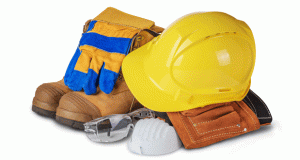LONG TERM CHANGES
We’re coming up to a year since the pandemic broke and the way in which we all work has been disrupted in a way no one could have imagined at the start of last year. The survey shows clients are reviewing workspaces and considering all options. Many of these considerations, such as reducing real-estate, repurposing buildings, and supporting agile working by introducing hybrid models are not new, but COVID-19 has accelerated this process. Nearly 70 per cent of customers confirmed their medium-term plans for building utilisation has changed and half (50 per cent) cited agile working and rationalisation as their main reason for change.
Alongside this the survey found that client’s focus on service lines and requirements have changed, with a third (33 per cent) saying their focus is now on agile working, while 22 per cent are reviewing the allocation of spaces on sites with plans for repurposing total real estate. The average score for the level of change was 6/10 but this number is as high 9/10 within the private sector.
Explains Shorthose: “Over half of clients thought there was a significant need to review their service lines and the emphasis they put on certain areas. For example, 35 per cent of clients wanted more investment in cleaning and an additional focus on health and safety which is 75 per cent more important than ever before. The language here is also changing, as health and safety is as much about mental wellbeing as physical health.”
“Our survey also found that sustainability has not been overlooked, despite the disruption to workplaces, as it is 30 per cent more important than it was before, which is very positive, given everything else going on. It still remains a priority for us to help our clients and it’s still on the radar, and that hasn’t ceased. Sustainability in this context includes social value and wellbeing which are more important than ever before.”
One of the predictions for the future of FM following the pandemic is that the use of technologies such as sensors to maintain social distance, devices to measure infection control and automated service delivery has advanced the digitisation of the workplace. Does this mean FM service providers and their clients will rely more heavily on AI and apps to measure performance?
According to Shorthose, customers see managing workplace in two ways;
- 1. Data driven decision making and the connected workspace as a way to measure how the building is being utilised.
- 2. Employee insights, how they want to use the space to remain productive while maintaining personal wellbeing.
Says Shorthose: “Both elements have to go hand in hand, but you can’t dismiss the technology informing that. When you put the two things together, that’s when you get operational efficiency and meeting goals. The FM provider who is successful in that space will get that balance right between investing in that technology but know how to implement it in a way that is engaging people to understand the benefits that data can bring.
“A lot of my role is in driving change, and this is no different. You have to take people along as there is an engagement piece and an education piece and to me you’ve got to have all of that together with the technology and the solution. I genuinely feel that FM providers which can bring technology together with the workplace experience on a behavioural basis will be the ones that succeed.”





